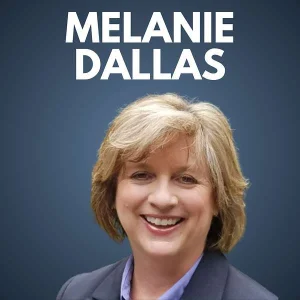Listen
Show Notes
In this episode of Tim Talks, host Timothy A. Zercher sits down with Chelsea Freeman-Yates, LISW, Executive Director of the Lorain County Children and Families First Council. Chelsea shares her journey from school social work to countywide leadership, her philosophy on building trust across organizations, and how she balances direct clinical work with executive responsibilities.
Topics include:
- Why leadership often chooses you
- Building effective collaborations and giving underrepresented voices a seat at the table
- Trends shaping the future of social work, including trauma-informed care and technology
- Balancing clinical practice with executive leadership
- The countywide Kids Summit initiative
- Leading with a trauma-informed lens in all areas of decision-making
If you want a raw, insightful look at leadership in social work and community impact, this episode is for you.
Episode Overview
00:18 – What inspired you to move into leadership at the Lorain County Children and Families First Council?
Chelsea shares how relationships and unexpected opportunities shaped her career path and brought her into leadership.
01:42 – How do you approach building effective collaborations across community organizations?
She explains the importance of trust, showing up, and ensuring that even the “underdog voices” are heard in decision-making.
03:15 – What trends do you see shaping the future of social work in education and healthcare?
Chelsea highlights trauma-informed care, equity-driven practices, and technology as key drivers of change.
04:37 – How do you balance clinical work with executive responsibilities?
She discusses time management, leaning on her team, and why she still maintains a small caseload to stay grounded.
07:17 – Which recent programs or initiatives are you most proud of leading?
Chelsea spotlights the Lorain County Kids Summit, a countywide collaboration event drawing hundreds of leaders and community members.
09:05 – What role does trauma-informed care play in your leadership style?
Chelsea emphasizes using trauma-informed approaches with staff, systems, and communities—always recognizing people’s unique stories and strengths.
10:12 – Closing Thoughts
Tim thanks Chelsea for her insights, and Chelsea reflects on the importance of inclusive, human-centered leadership.



